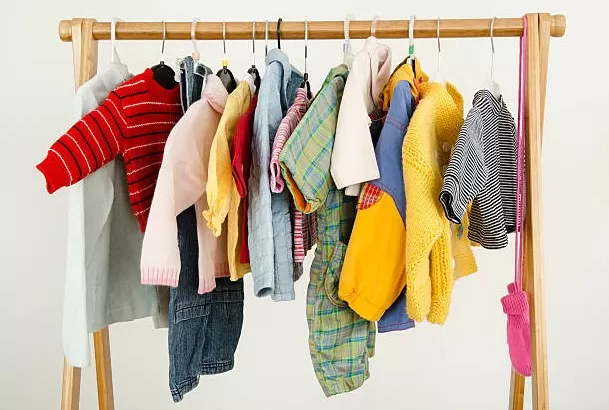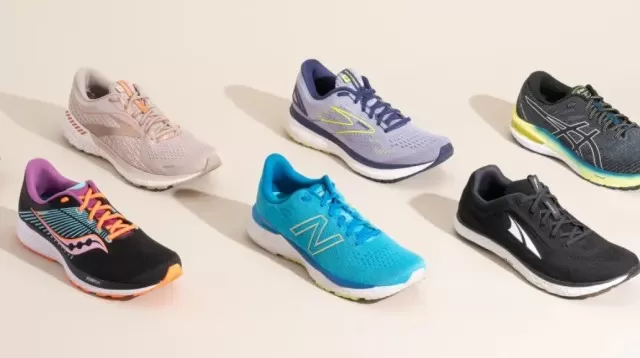Clearing out clutter is a satisfying start to creating a more organized home, but figuring out what to do with all the items can be a challenge.
Simply throwing them away and contributing to landfill waste should be a last resort for anything that isn’t truly trash.
Instead, explore eco-friendly options for selling, donating, recycling, or properly disposing of your unwanted belongings.
The best approach will depend on the specific item, its condition, your desire to make money, and your willingness to put in some effort.
To assist you in your decluttering journey, we’ve put together a comprehensive guide on how to responsibly get rid of nearly anything, including clothing, electronics, furniture, children’s toys, linens, and more.
Before resorting to throwing things in the garbage, consider these tips for giving your old items a second chance at usefulness.
Deal With All Kinds of Clutter

Books.
After decluttering your bookshelves, you may wonder what to do with the books you no longer need.
Contact your local library to see if they accept used books. Many libraries either put donated books on their shelves for checkout or sell them at fundraisers.
Additionally, local schools and community centers often welcome gently used reading materials. If none of these options are available, charitable organizations like Goodwill Industries and The Salvation Army are generally willing to accept most book donations.
If you’re looking to make some extra cash from your book collection, consider selling them at a garage sale or taking them to a local used bookstore.
Another option is to look for a Little Free Library in your neighborhood, where you can share books with your neighbors.
Building Materials and Appliances.
If you have excess building materials or old appliances lying around after a home remodel, consider donating them to organizations like Habitat for Humanity.
Habitat ReStore outlets accept items such as appliances, cabinets, doors, flooring, and windows, which are then resold at discounted prices. The proceeds from these sales help fund Habitat for Humanity’s mission of providing safe and affordable housing.
Cell Phones.
When it’s time to upgrade your phone, don’t just throw away your old one.
Instead, consider donating it to a charitable organization that refurbishes or recycles cell phones, such as 911 Cell Phone Bank or Cell Phones for Soldiers. Many cell phone carriers and electronics retailers, including Verizon and Best Buy, also have recycling programs for old devices.
Clothing.
After cleaning out your closet, you have several options for getting rid of clothing you no longer wear.
If you want to directly help those in need, consider donating your clothes to local shelters or churches that provide clothing to homeless individuals and families. Alternatively, organizations like Goodwill Industries and The Salvation Army accept gently used clothing and resell them through their thrift stores to fund charitable programs.
If you’re looking to sell your clothing, various online platforms such as Mercari, Poshmark, and ThredUP make reselling easy.
For garments that are too stained, damaged, or worn for further wear, you can research clothing recycling programs in your area or check if your local sanitation department offers textile recycling services.

Computers and Electronics.
When it comes to computers, office equipment, TVs, and other electronics, many of these items contain reusable components even if the device itself is no longer functional.
Look for used electronics collection days in your community or locate nearby drop-off locations that accept electronic waste. The U.
S. Environmental Protection Agency’s website provides information on companies with electronics donation or recycling programs, such as Best Buy and Staples.
Eyeglasses.
Donating your old eyeglasses can make a significant difference to someone in need.
The Lions Club has a long-standing eyeglasses donation program that helps combat vision impairment. Check their website or drop off your old glasses at participating Walmart Vision Centers.
Some eyewear retailers, like LensCrafters, also accept old glasses for recycling and reuse.
Furniture.
To get rid of gently used furniture, you have several options.
Resale platforms such as Facebook Marketplace, Craigslist, and OfferUp allow you to sell furniture to people in your area. If you want to reach a wider audience, platforms like Mercari or Chairish enable you to ship items to buyers nationwide.
Alternatively, you can donate furniture in good condition to local Habitat ReStores, Goodwill, or Salvation Army outlets.
For furniture no longer fit for reuse, check your municipality’s policy for bulky item disposal.
Some areas may require you to schedule a pickup appointment or take the item to a specific drop-off location.
Household Goods.
To give your household goods a New Home, consider donating them to organizations like Goodwill Industries, The Salvation Army, or local thrift stores that support veterans service programs or homeless shelters.
Local food banks, emergency shelters, and community outreach centers may also accept donations of cleaning supplies, dishware, Small Appliances, and other household goods. Always call ahead to confirm donation acceptance.
If you prefer to make money from your household goods, consider selling them at a garage sale.
It can be helpful to have an extension cord and a working outlet nearby so potential buyers can test any electronic items.

Kids’ Clothing.
When it comes to getting rid of kids’ clothing they’ve outgrown, you can host a swap with friends or neighbors.
Invite parents with children of various ages to ensure a range of sizes for everyone to choose from. Make the swap more enjoyable by organizing it around a social event like a potluck or picnic.
Any remaining clothes that no one wants can be donated.
Consignment stores are another option for selling kids’ clothes that are still in good condition, especially those with top-brand or designer labels.
Check local consignment shops or explore platforms like Just Between Friends Franchise Systems, which sponsor children’s and maternity consignment sales nationwide. Online resale sites like Poshmark and ThredUP can also be useful for selling kids’ clothing.
Kids’ Toys, Stuffed Animals, and Baby Gear.
When parting with beloved kids’ toys, consider donating them to organizations such as Stuffed Animals for Emergencies, which distributes them to emergency organizations, children’s services, hospitals, and homeless shelters.
Another organization, Second Chance Toys, accepts plastic toys for kids in need.
Local schools, daycare centers, and churches may also accept donations of kids’ items.
However, it’s important to note that some charities may not accept certain toys, especially stuffed animals, or certain baby equipment due to recalls. Always check with the organization before donating.
Music, Movies, and Video Games.
Old CDs, DVDs, video games, cassettes, and vinyl records may no longer interest you, but they could be valuable to collectors.
Consider listing items that might have value on eBay or take them to local music stores or consignment shops. Thrift stores are generally good places to donate these items as well.
If you have an extensive collection of children’s movies or video games, contact local hospitals, schools, or childcare centers to see if they would accept donations.
For damaged or unusable discs and tapes, look for technology recycling services like GreenDisk that specialize in electronic waste disposal.
Old Towels, Linens, Rugs.
Animal shelters and humane societies often welcome donations of old towels, linens, and rugs to provide warmth and comfort to animals in need.
Reach out to your local ASPCA, Humane Society, or small-animal rescue groups to find out what they need. This is an excellent option for worn towels and linens that are not suitable for resale or donation to thrift stores.
Plastic Food Storage Containers.
Instead of throwing away plastic food containers that are missing lids, cracked, or stained, check if they are recyclable.
Look for a stamped number inside a rectangular recycling logo, typically found on the bottom of the container. No.
1 and 2 plastics are usually recyclable, but it’s best to verify with your local recycling program which types they accept.
Professional Clothing.
If you have business clothing that no longer fits or suits you, consider passing it on to organizations like Dress for Success.
They collect gently used professional attire such as suits, blouses, and shoes to provide to women in need for job interviews. Local homeless shelters, community centers, and veteran organizations may also appreciate professional clothing donations.
Prom Dresses.
Give your worn-once prom dresses a second life by donating them to organizations like Becca’s Closet.
They accept new or lightly worn formal dresses and gift them to high school girls who cannot afford them. Another option is to sell prom dresses and other formalwear through resale platforms such as Facebook Marketplace or Poshmark.

Shoes.
If your shoes are still in decent shape, consider donating them to someone who can wear them.
Charities often distribute good-condition shoes to those in need. Soles4Souls is one organization that accepts new or gently used shoes and distributes them to impoverished individuals.
For worn-out or damaged shoes beyond repair, explore ways to recycle your old footwear instead of throwing them away. Nike, for example, collects and recycles used athletic shoes from any brand at participating retail stores.
Specialty or Collectible Items.
Specialty items or collectibles can be challenging to sell at yard sales, as most shoppers are looking for bargains.
Platforms like eBay, Etsy, or Chairish are better suited for selling antiques, art, and other collectibles, as they attract serious collectors. If you have a set of dishes missing a few plates, consider listing the pieces individually instead of trying to sell an incomplete set.
Unwanted or Duplicate Gifts.
If you receive an unwanted gift, try returning it to the store it came from.
Consider donating the item to a thrift store or charity auction if that’s not an option. Another option is to join a “Buy Nothing” group on Facebook, where you can offer the item for free to someone in your local community who might appreciate it.
*The information is for reference only.